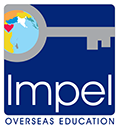🏡 Accommodation Options in New Zealand
Finding the right place to stay is an important part of your study abroad journey. Many universities and institutions provide on-campus or off-campus accommodation options, ensuring a comfortable and safe living environment for international students.
1️⃣ Halls of Residence / Student Hostels 🏢
✅ Located on-campus or nearby
✅ Choice of single or twin-sharing rooms
✅ Bed linen & cleaning provided
✅ Meals included (communal dining hall, catering to special dietary needs)
✅ Social & sporting activities organized for students
✅ On-site warden for safety & support
✅ Some hostels offer self-catering facilities where 6-8 students share a kitchen & living room
🎯 Best for: Students who want a structured, social environment with meals included.
2️⃣ Homestay / Private Board 🏡
✅ Live with a local New Zealand family in a suburban home
✅ Meals provided by your host family
✅ Great way to improve English and experience Kiwi culture
✅ Host families help students adjust to life in New Zealand
🎯 Best for: Students looking for a home-like environment and cultural immersion.
📌 Note: Homestay is different from a hotel stay—it’s about becoming part of the family, so mutual respect and participation in household activities are expected.
3️⃣ Renting a House or Apartment (‘Flatting’) 🏠
✅ Ideal for students who want independent living
✅ Options range from 2-bedroom apartments to large houses
✅ Choose your own flatmates
✅ Most rentals are unfurnished, but include:
- Oven
- Laundry
- Curtains & carpets
✅ A bond of up to 4 weeks’ rent is held by Tenancy Services and refunded when you move out (if the property is in good condition).
🎯 Best for: Students who prefer independence and are comfortable managing their own meals & expenses.
4️⃣ Finding a Rental 🔍
📌 Where to Look for Rentals?
- University Accommodation Office (notice boards with listings)
- Local Newspapers (classifieds, especially on Wednesdays & Saturdays)
- Rental Websites featuring properties across New Zealand
🏥 Healthcare & Medical Insurance in New Zealand
The New Zealand government requires all international students to have medical & travel insurance for their entire study period.
✔ Medical Insurance Coverage Includes:
✅ Doctor visits (General Practitioners at student health centers)
✅ Hospital treatments
✅ Ambulance services
✅ Specialist consultations
🎯 Where to Get Medical Care?
- Most universities have Student Health Centers offering affordable medical care.
📌 Note: Dental care is NOT included in standard medical insurance and is not available at Student Health Centers. It’s recommended to get additional dental insurance to avoid expensive treatment costs.
🚑 No-Fault Accident Compensation Scheme (ACC)
✅ Covers all students, citizens, and visitors in New Zealand
✅ Provides medical & dental treatment, prescribed medications, X-rays, & surgery for injuries caused by accidents
✅ Covers accidents happening anywhere (university, home, public spaces, etc.)
📌 Important: Since ACC covers accidents only, you still need medical insurance for illnesses, hospitalizations, and routine check-ups.
💡 Need Help Finding Accommodation or Insurance?
Our team is here to assist you in securing safe housing and comprehensive insurance for your time in New Zealand!
🚀 Start Your Study Abroad Journey with Confidence! 🎓



